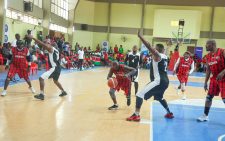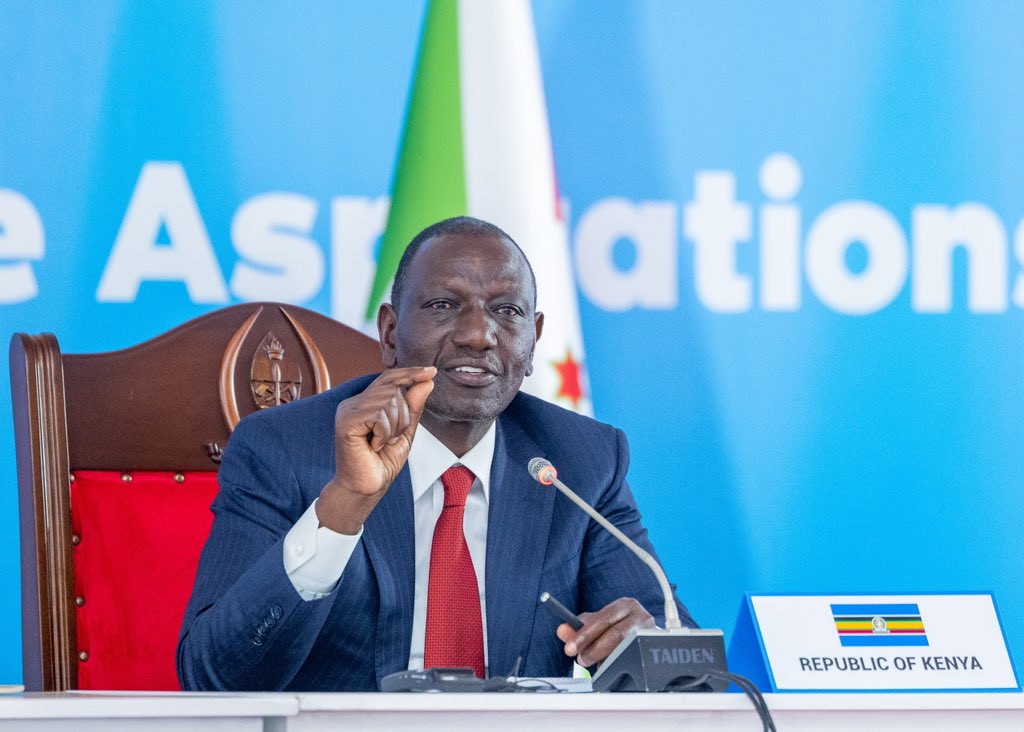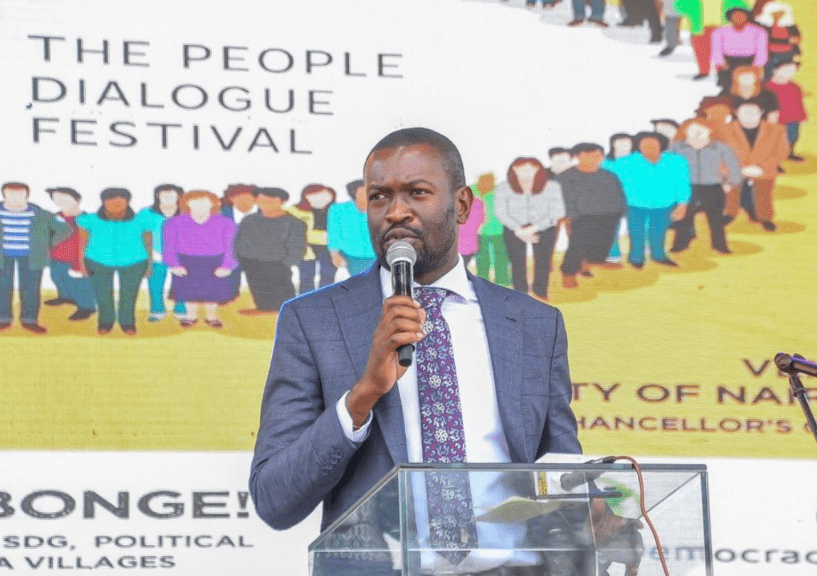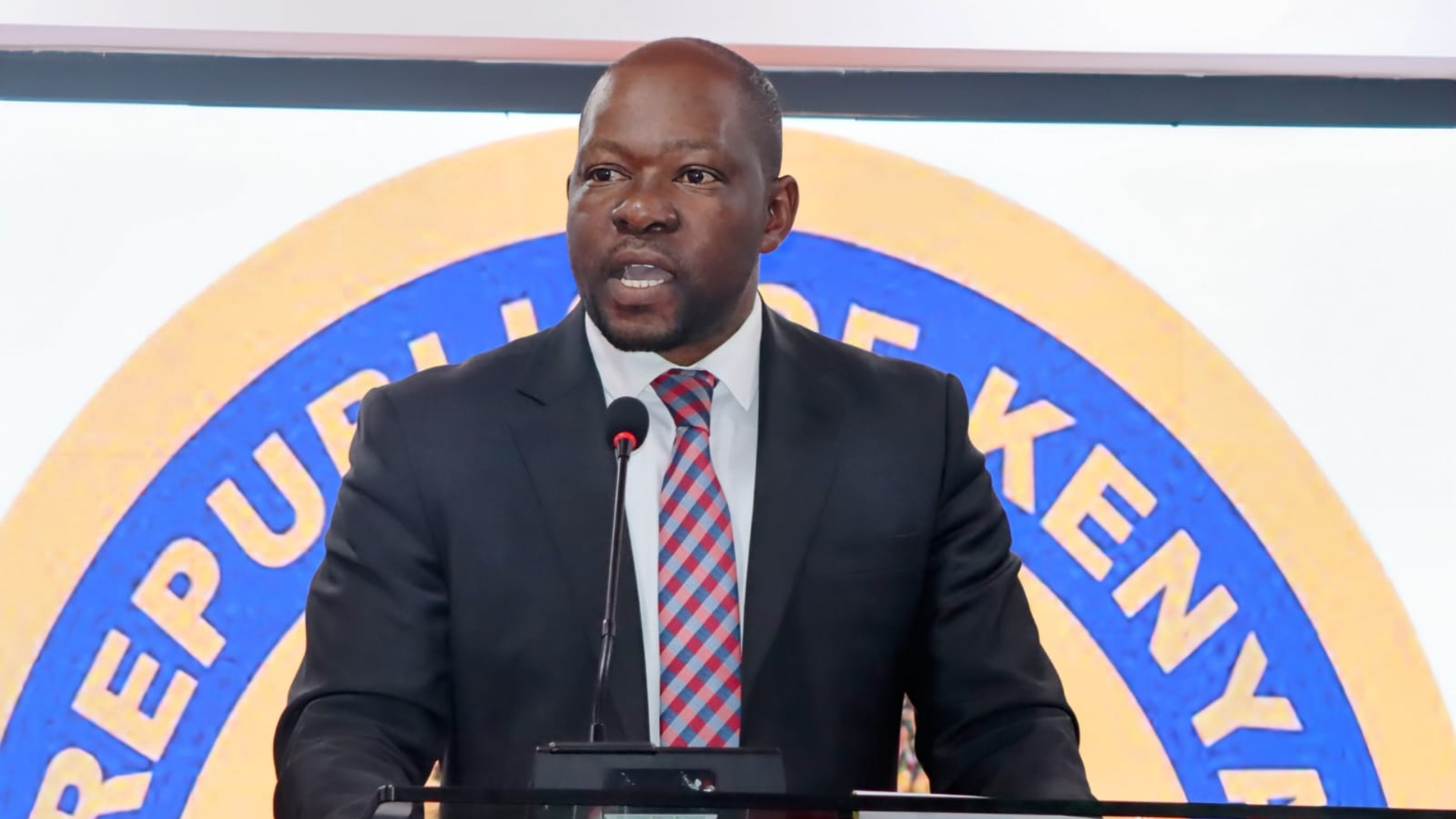All-female ranger unit breaks social barriers
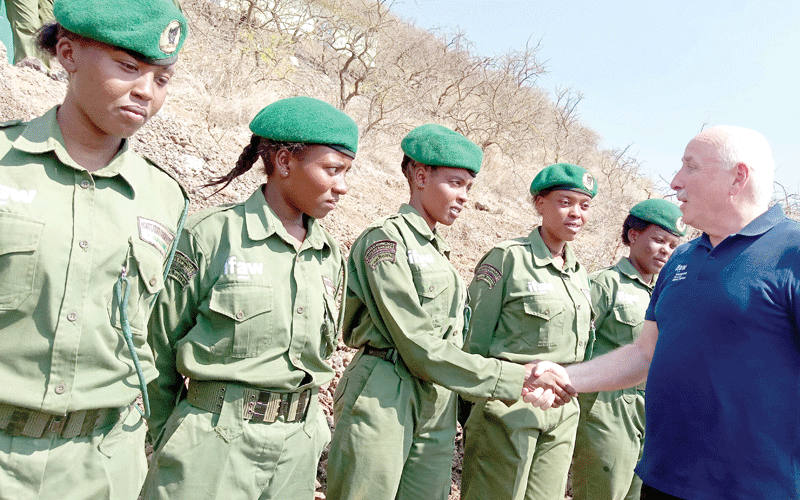
Team Lioness is making history as an all-woman group fighting poachers, conserving the environment and acting as role models to the young Maasai girls
Clad in jungle green uniform and black boots, Purity Amselet Lakara, a ranger at Olgulului-Ololarashi Group Ranch (OOGR), Kajiado county, is on an afternoon foot patrol.
Under the scorching heat, she walks in long strides, her small frame gliding through the long dry grass and thorny acacia bushes at the foot of Mt Kilimanjaro.
There are no sophisticated rifles to brandish; rather, she is armed with a notebook, GPS, a pair of binoculars, a pen and a cellphone. When doing this, many things can go wrong.
“Imagine encountering a group of armed poachers while deep in the bushes, yet you are not carrying a weapon.
Then taking cover in a hole or under a rock, where you are at a high risk of finding poisonous snakes,” she posits.
First in family
Purity is the team leader of Team Lioness, a female ranger unit protecting community lands within the larger Amboseli National Park ecosystem. In the male-dominated world of rangers, the trailblazing initiative by International Fund for Animal Welfare (IFAW) is aimed at getting more women at the forefront of protecting wildlife.
These eight female rangers drawn from the resident Maasai community are not only fighting poachers, but also challenging the status quo.
“With this initiative, we not only want to empower the Maasai women to be actively involved in securing habitats and watching over wildlife, but to also bridge gender gap in conservation,” says Azzedine Downes, President and CEO, IFAW.
Before the initiative started, there was barely any woman working as a ranger within the community.
The 363,245 -acre community ranch, where over 2,000 elephants traverse, was patrolled by 56 male rangers within a unit formed 12 years ago when OOGR was established.
The unit tackled poaching, human wildlife conflict and guarded against destructive practices such as logging and charcoal burning.
Incorporating Team Lioness into the ranger unit has injected new worldview and freshness to wildlife protection.
“Recruiting the female ranger unit is helping break cultural barriers by giving women an opportunity to access employment and be economically empowered.
The perception that a girl cannot do certain jobs such as being a ranger has been challenged by Team Lioness,” says Patrick Papatiti, director of operations, Olgulului Community Wildlife Rangers.
The female rangers, all aged 17- 26, have secondary education and are the first to earn formal employment in their families.
Cultural practices such as female genital mutilation and early marriages force many Maasai girls to drop out of school, hampering the chance to further their education and formal employment.
Recruitment was done on the basis of their education qualifications, with each of the eight clans within the community getting a slot to ensure equality.
Purity, a seventh born in a family of 10 was raised by a single mother who educated her by selling beaded jewellery to tourists at Amboseli National Park.
Her parents separated when she was young because her father wanted to marry her off.
Seeing how proceeds from tourism supported her family motivated Purity to work hard in school. The 24-year-old is the first in her family to get secondary education.
Along with other members of Team Lioness, Purity underwent a three-week paramilitary training before joining the unit.
“A lot of times, we deal with irate members of the community when their livestock is attacked by wildlife.
It requires a lot of wisdom to calm them down, putting in mind that some are armed and could easily harm us,” she says.
Role models
Patrolling the terrain inhabited by lions, buffalos, baboons, zebras, leopards and cheetahs on foot and unarmed requires a lot of skill and resilience.
Good relationships with the community have contributed to Team Lionesses’s success.
The unit’s operations are guided by intelligence collected through Ten Boma, a security initiative that sources information on possible threats from members of the community.
When the unit encounters armed poachers or threats of big magnitude, they get backup from KWS rangers.
On a day, rangers can walk up to 48km scanning for threats to wildlife. The unit has two trucks for rapid response operations.
They also conduct night patrols and ambushes based on the intelligence they receive.
“Almost 95 per cent of our ranger unit have not been to school. Most of them were chosen for being good warriors in the community.
Bringing in Team Lioness would ease our work since some of the rangers’ activities involve analysing data,” adds Papatiti.
Purity and other rangers reside in camps within the ranch and get a chance to visit their families every one week in a month.
The presence of female rangers has inspired a paradigm shift within the community.
“Initially men looked down on us. They thought we were not up-to the task. But after realising we can do the job competently, they now respect us,” she says.
This unit has also inspired young girls like Purity’s sisters by giving them role models.



